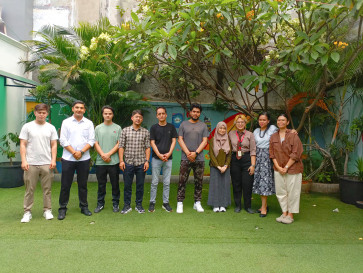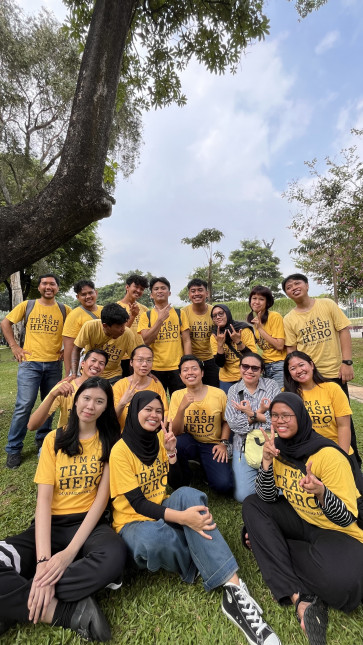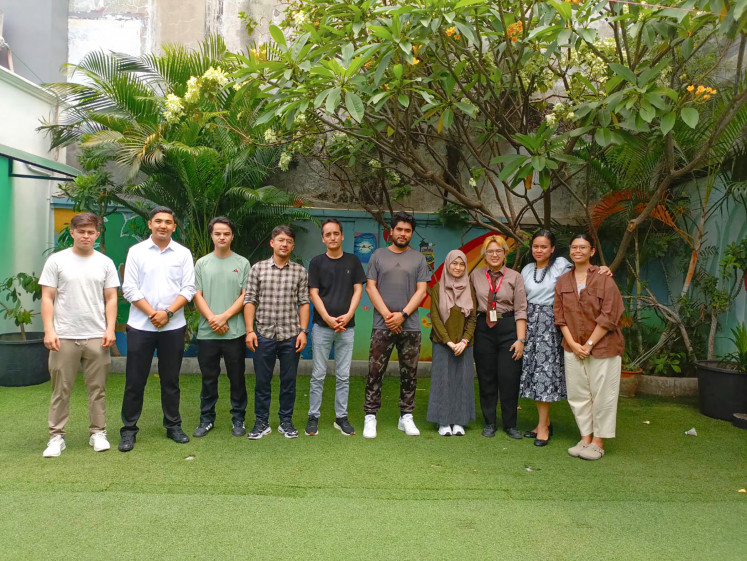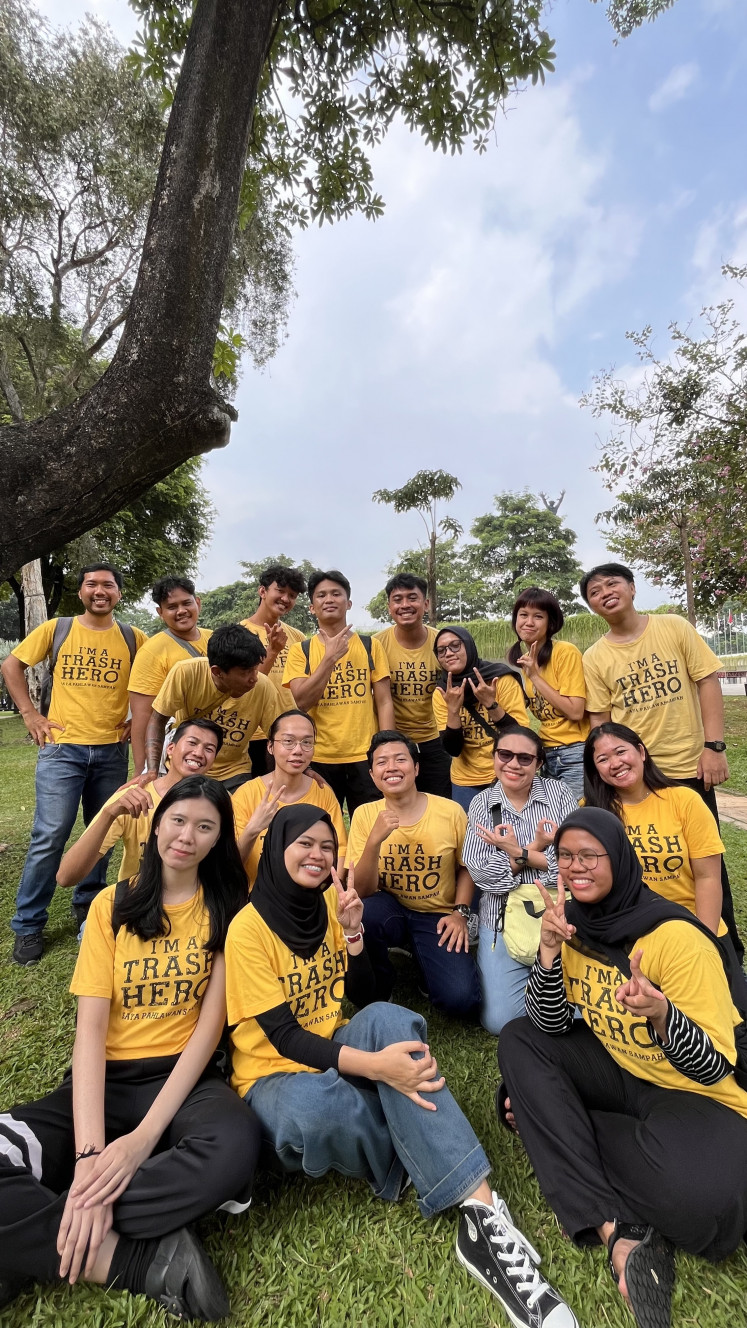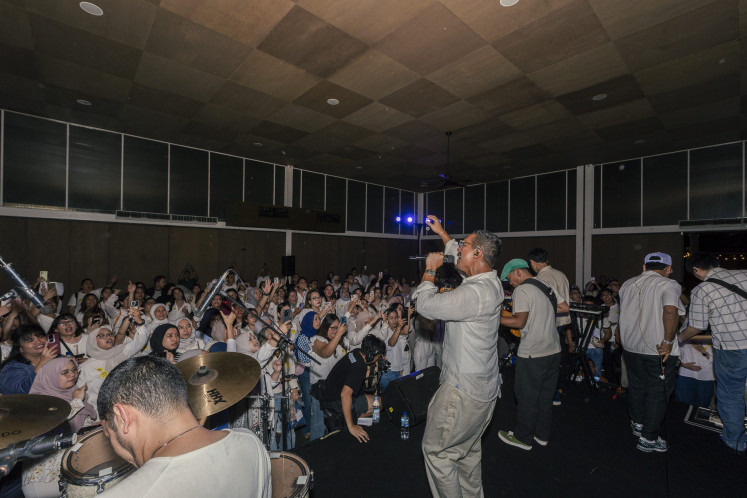(Courtesy of BWork)
It’s 10 a.m. and Cecilia Wijaya’s day is just getting started. In about an hour, she will head to her “office” for the day, which could be one of the coworking spaces in Canggu, or a table by the beach.
She’ll have enough time for a leisurely brunch before work officially starts at 2 p.m. That’s when business hours start in Denmark, the location of the start-up company for which she has been working over the past six years as a remote project manager.
“I spent a few months in Ubud before, where I worked from a coworking space,” the 28-year-old says, recalling her early days in Bali after moving from Jakarta. “And then I decided to move down to near Canggu for a change. I like it here better.”
Cecilia is one of hundreds, if not thousands, of digital nomads who like it better in Canggu. In 2022, Tourism and Creative Economy Minister Sandiaga Uno was quoted as saying that Canggu had the biggest number of digital nomads in Bali, with the majority coming from Russia, the United States and the United Kingdom.
The trendy village on the southwestern coast of Bali has in fact drawn so many temporary residents over the past few years that property prices have skyrocketed, along with the volume of cars and motorcycles squeezing into its narrow roads.
Once an idyllic and peaceful coastal village surrounded by lush paddy fields and epic beaches popular among laid-back surfers, Canggu began its transition into the haven for workers untethered to cubicles it is today only a few years ago.

Thank you!
For signing up to our newsletter.
Please check your email for your newsletter subscription.
Starting up
It was during the COVID-19 pandemic, when thousands of travelers were stuck in Bali and employees everywhere gained freedom to work remotely, that the scenery in Canggu began to change.
“In 2021, when most regions in Bali experienced a decline in economic activity, Canggu remained active and showed signs of strong economic recovery,” says Kennylia S. Koentoyo, the marketing and community specialist of BWork Bali, one of the most popular coworking spaces in Canggu.
Because there were so many people in Canggu during the pandemic, various businesses opened to cater to their needs.
“We saw an opportunity to contribute to the local economic growth by creating a conducive environment for professionals that chose Canggu as their base to work and grow,” she says of their decision to open BWork Bali in 2021.
Komang Ayu Kristiani, a community manager from Tropical Nomad, another well-established coworking space in the area, adds that people preferred to stay in Canggu throughout the pandemic because “it was pretty laid-back down here”.
“The mask-wearing regulation was not as strict as in the other regions in Bali and we have great beaches that allowed people to do various activities, especially surfing,” she says.
But three years later, with increasing congestion and nearly daily gridlock, is Canggu still a preferable base for digital nomads?
“That is part of Canggu's character that makes it unique,” Ayu says. “It doesn't really affect us, because many people are used to it and they still want to enjoy all that Canggu has to offer.”
Read also: AI & us: Navigating tomorrow’s workplace
Network effects
In the digital economy, the influence of network effects — the phenomenon where the value of a product or service increases as it attracts more users — is generally seen to have been heightened. It appears the same phenomenon is true for the digital nomad community in Canggu.
“Canggu has a solid digital nomad community that emerged during the pandemic and strong social support,” Kennylia says.
Most coworking spaces also organize regular meetups, workshops and networking events to help support and strengthen their communities, Ayu adds.
“And in Tropical Nomad, existing members embrace newcomers and help them grow by identifying what their interests are to direct them to the right group of people within the community,” she says.
Danielle Theobald, a digital nomad from England, agrees. Canggu, she says, has more social interactions and is more community-oriented than other areas in Bali.
“Everyone is looking to grow and connect, and there are a lot of value exchanges here. It’s great for networking and making friends,” says the 24-year-old CEO and founder of Dani Digital, a social media marketing agency.
Plus, she adds that “the locals are the kindest, funniest and most genuine people I have ever met”.
“There is no competition or negativity here, everyone is happy and I feel motivated and inspired by my environment,” she says.
And it’s not just for millennials or Gen Z digital nomads.
“It’s good for networking and sharing,” says Jonathan Sarno, 78, who chose to work remotely from Bali because “New York City, where I come from, is not a good place to be right now for a number of reasons.”
He is setting up an online store and website for his own yoga clothing brand, he says, and regularly joins workshops and meetup events organized by Tropical Nomad.
Read also: Experience a fiery culinary journey at Charkoal
Everything and more
This community is supported by all the services a digital nomad might want and need.
“[Canggu] has facilities that support the lifestyle of digital nomads such as high-speed internet connection, gyms, as well as restaurants serving healthy food,” says Kennylia, adding that BWork Bali offers wellness programs including yoga, boxing and muay thai.
“And, of course, good cocktails,” Danielle adds.
A welcoming community, digital connectivity and a laid-back beach lifestyle set against the daily backdrop of the magnificent Balinese sunset. For the digital nomads of Canggu, all these are enough to outweigh the congestion and inconveniences of traffic jams.
But they do hope these inconveniences can be addressed, especially as this community continues to grow. Kennylia says she hopes the government provides more support, both in terms of infrastructure and immigration policies.
“With this support, Bali can maintain its position as one of the global favorite destinations for the digital nomad community to compete with other countries,” she says.
Read also: Digital apps for parents of digital natives
This article is part of The Weekender, a biweekly tabloid that appears in the Saturday edition of The Jakarta Post. Offering a variety of feature articles on lifestyle and culture, it aims to enriching your reading experience. Subscribe here to access The Jakarta Post's Saturday edition and all Premium content.





